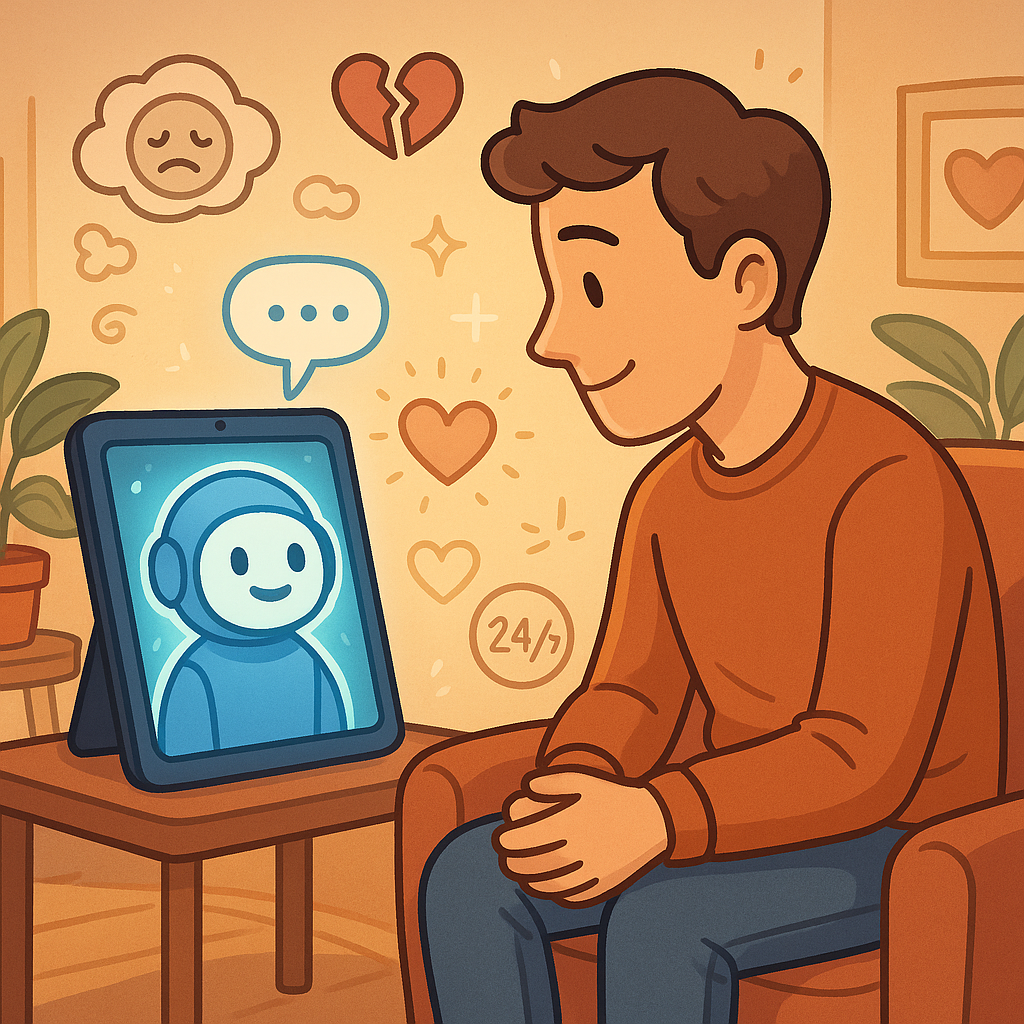
Introducing Generative AI Chatbots: Transforming Mental Health Support
Generative AI therapy chatbots are marking a significant milestone in mental health care by offering personalized, dynamic interactions. Unlike older rule-based systems, these advanced chatbots engage in fluid, open-ended conversations capable of handling complex and co-occurring mental health conditions. Leading this innovative wave is Therabot, a pioneering digital therapeutic developed by Dartmouth researchers using generative AI for mental health interventions.
Clinical Success: Therabot’s Impact on Depression, Anxiety, and Eating Disorders
In clinical settings, Therabot has shown impressive outcomes. Over four weeks, users exhibited significant reductions in symptoms: 51% for depression, 31% for anxiety, and 19% for eating disorders. These results rival those of human therapy. Importantly, users reported developing a trusting relationship with the chatbot similar to what they experience with human therapists, underscoring its potential for fostering therapeutic engagement.
Promise and Challenges: What AI Therapy Chatbots Mean for Mental Health Professionals
For therapists, generative AI chatbots represent both opportunity and challenge. They could dramatically expand access to mental health services amid a global provider shortage, serving as round-the-clock support. However, risks such as AI hallucinations—where chatbots generate false or misleading information—highlight the critical need for stringent ethical and safety measures. Given their current limitations in handling high-risk situations, human oversight remains essential.
Complementing Human Therapists: Practical Roles for AI Chatbots
Rather than replacing clinicians, AI chatbots are best seen as complementary tools that can reduce professional burdens and enhance patient engagement. They can handle routine check-ins, reinforce therapeutic goals, and provide support when therapists are unavailable. Future improvements should target enhanced memory, therapeutic guidance, and realistic interactions to ensure chatbots offer safe and effective therapeutic experiences.
User Perspectives: AI Chatbots as Emotional Sanctuaries
Users often describe generative AI chatbots as emotional refuges that provide insightful guidance, especially for relationship issues or emotional distress. The accessibility and nonjudgmental nature of chatbots make them appealing for those hesitant about traditional therapy. Yet, users express a desire for chatbots to better remember past conversations and personalize responses more deeply to build ongoing trust.
Looking Forward: Blending AI and Human Care for Expanded Access
The integration of generative AI therapy chatbots is poised to transform mental health services by expanding reach, reducing wait times, and providing support beyond traditional hours. Mental health professionals must engage actively with these technologies to ensure ethical, safe, and effective implementation within blended care models that combine human expertise with AI innovation.
Conclusion: Unlocking the Potential of AI in Mental Health Care
Generative AI therapy chatbots offer transformative potential by merging technological advances with psychological insight. Ongoing collaboration among developers, clinicians, and users is vital to keep these tools human-centered, equitable, and clinically sound. This synergy promises new avenues for accessible and responsive mental health care in the digital age.
